Are Christmas cactus poisonous to cats and dogs?
Need to know whether Christmas cactus are poisonous to cats and dogs? We’ve consulted the experts so you can grow them with confidence and enjoy stress-free holidays
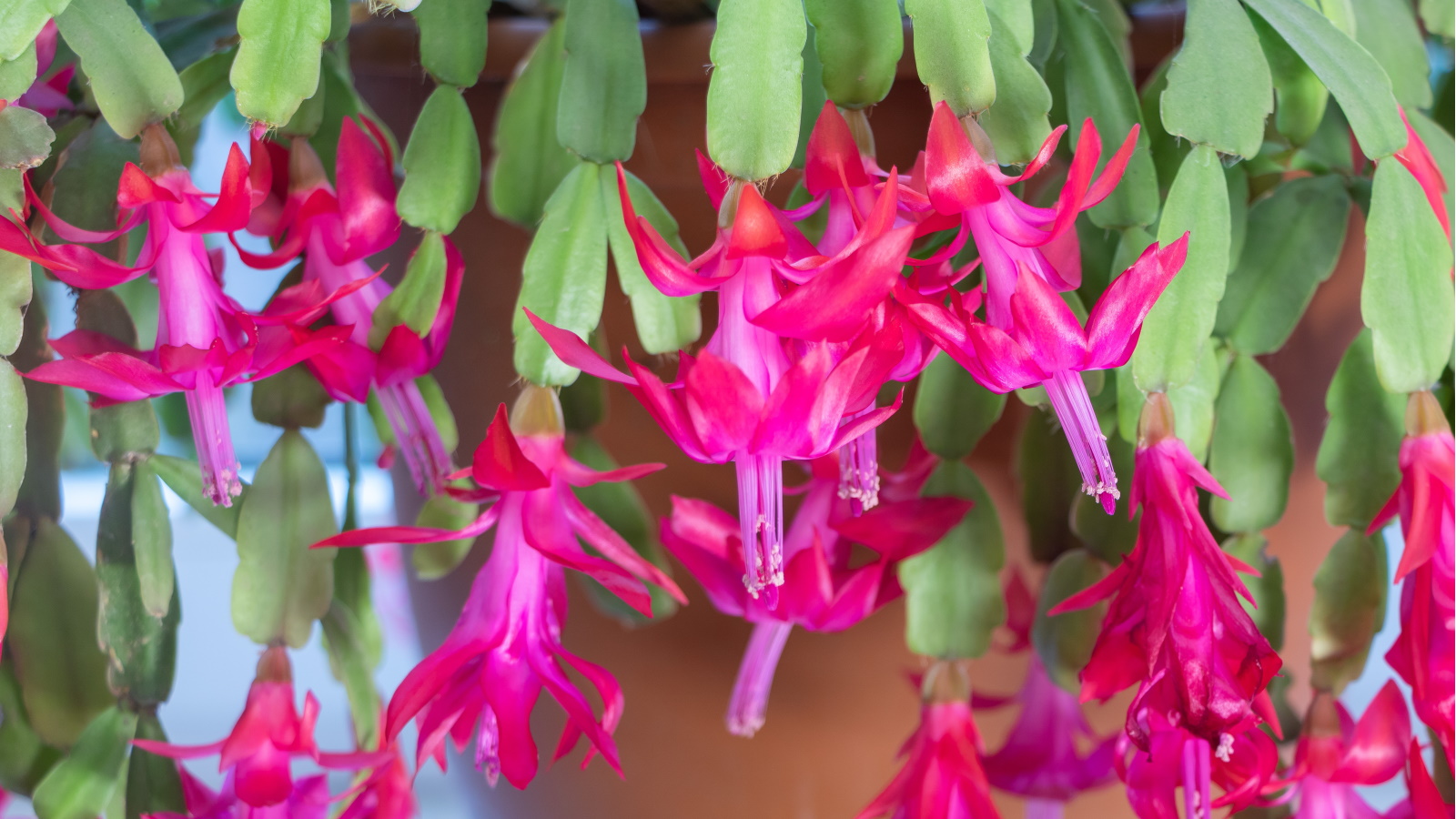

If you're wondering 'are Christmas cactus poisonous to cats and dogs?', then you've come to the right place – we've asked the experts to find out whether your Christmas cactus is a safe addition to your home.
Schlumbergera, better known as Christmas cactus, blooms from November through to January, bringing a much-needed burst of color and life to a winter interior. A firm festive favorite, their flowers come in an array of dazzling shades from white and blush pink, to fuchsia, orange, and red. It is no surprise, then, that homeowners across the country have been learning how to grow Christmas cactus – if you are thinking about jumping on the trend, then it is important to know whether they are safe to grow around your cats and dogs.
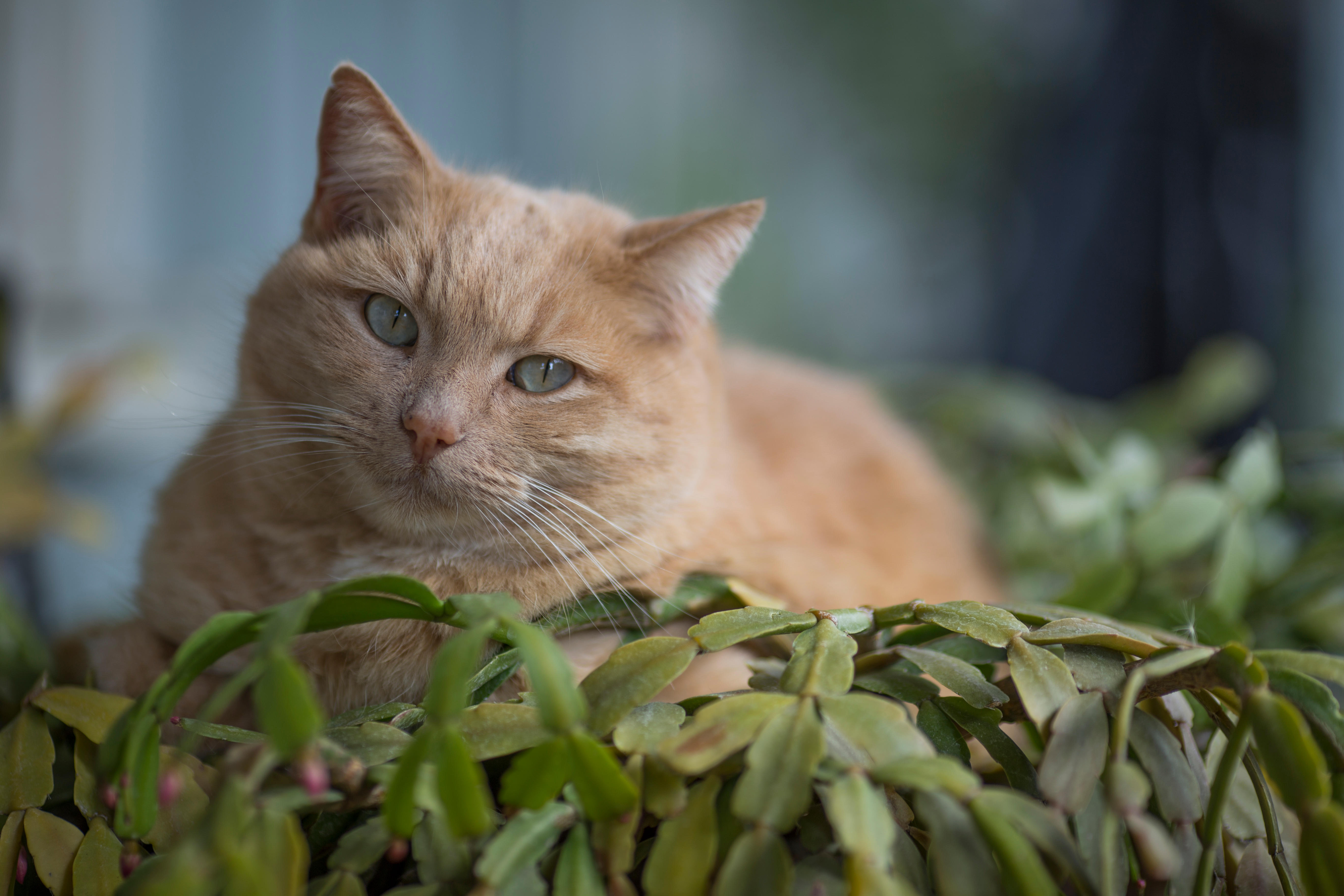
Are Christmas cactus poisonous to cats and dogs?
No, a Christmas cactus is not poisonous to cats and dogs – in fact, they are among the best pet-friendly houseplants.
According to the ASPCA these showy succulents are non-toxic making them perfectly safe for pet-friendly homes. What’s even better is that unlike many other cacti they don’t have any harmful spikes, so they pose very little problem wherever you choose to display them.
If you are also wondering whether poinsettia is poisonous to cats and dogs, then you'll be glad to know that they are not, either – why not pair poinsettia with your Christmas cactus to create the perfect festive display?
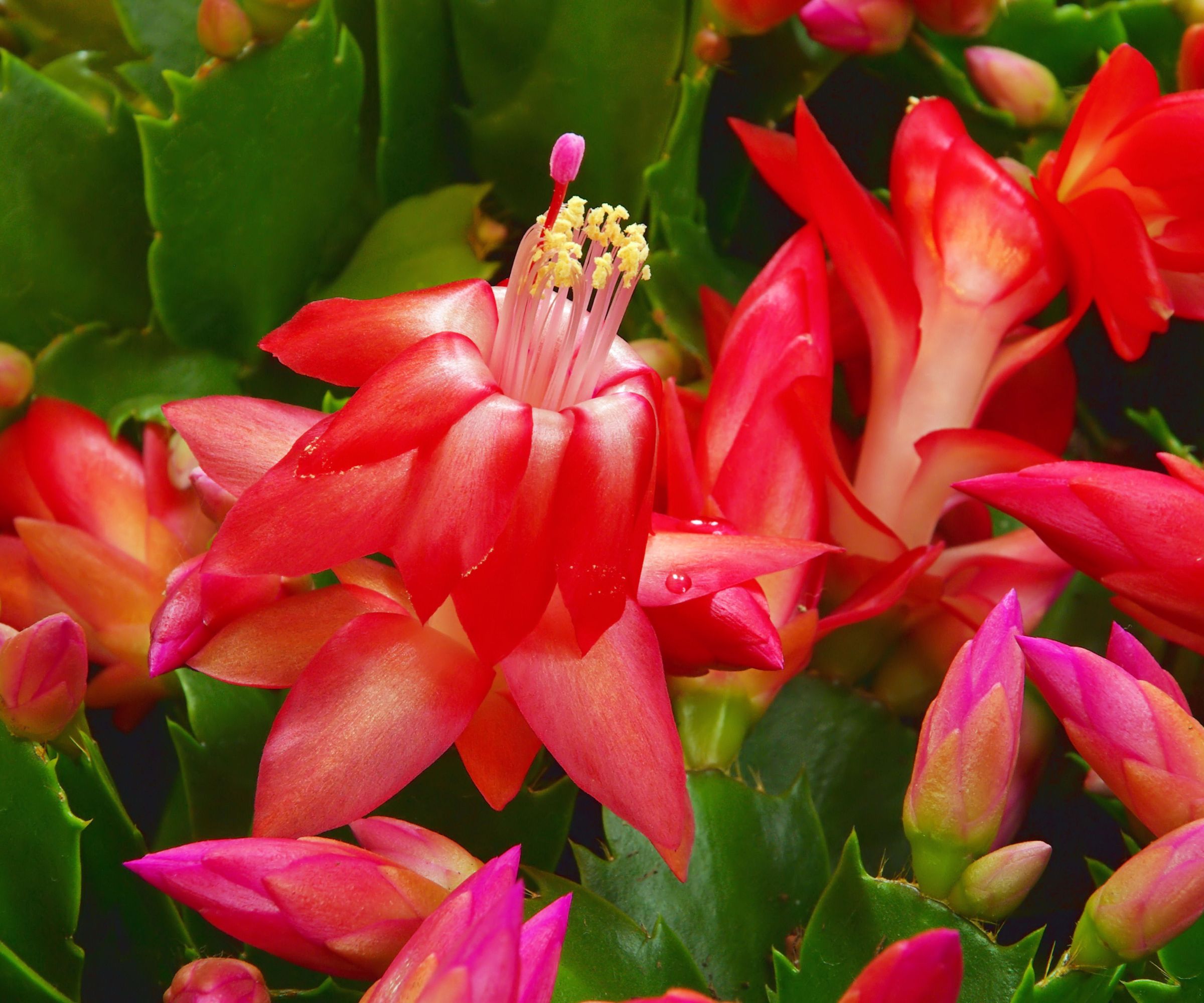
How to keep cats and dogs away from Christmas cactus
Christmas cactus have quickly become one of the best indoor plants, so it is a relief for pet owners to discover that the Christmas cactus is pet-friendly. ‘They are considered non-toxic, making them safe to keep around curious cats and dogs. However, the best practice is to keep houseplants out of reach of small children and curious pets just in case,’ says Eliza Blank of The Sill.
When living with pets, it is advisable to keep your houseplants off the floor and instead place them on a higher shelf, bookcase, or on a plant stand – we love this Bamworld design from Amazon. You could even pair them with cat-safe indoor plants for a botanical display.
With Christmas cactus' tendency to drape gracefully over the sides of their pot, they are ideal for growing in hanging or raised containers – handy if you want to keep them well out of reach and nibble off mischievous pets. Just remember to position them in a bright or semi-shady spot, out of direct sunlight as this can scorch the fleshy leaves.
'The Christmas cactus prefers bright, indirect light,’ says Keira Kay, Bloom & Wild plant expert. ‘In a window with dappled light or a well-lit but semi-shaded location is best in order for this plant to thrive.'
It’s also worth knowing that the leaves of this plant tend to break off if knocked or brushed against, so another good reason to keep them up high on a shelf or in a hanging planter. However, should they get knocked off you can use these leaves to propagate a new Christmas cactus.
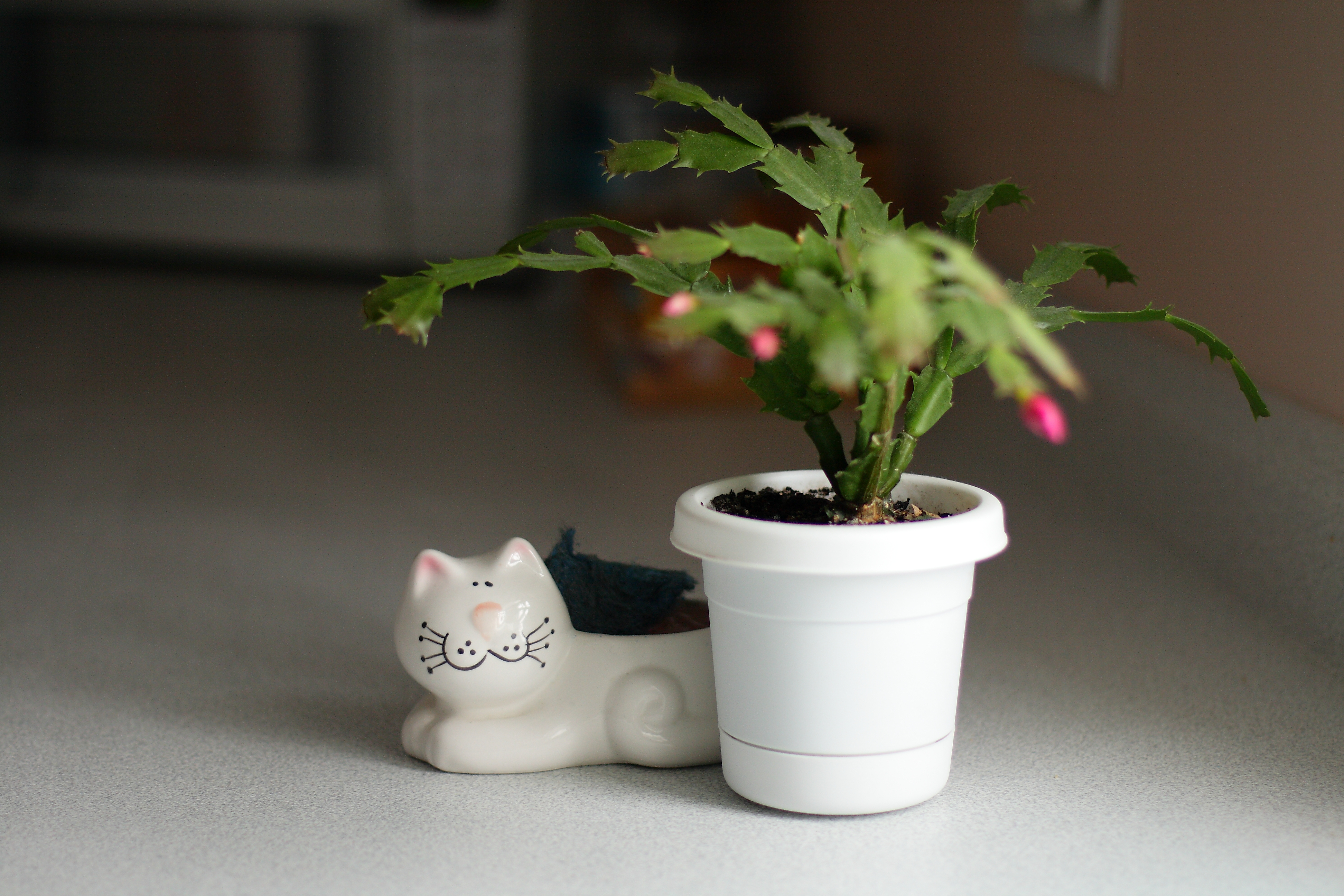
What do I do if my dog eats a Christmas cactus?
Like many succulents, Schlumbergera is non-toxic and perfectly safe to have around all household pets. The occasional curious nibble will not cause any discomfort, but as with all non-toxic plants, eating a large quantity of foliage can cause problems.
‘While Christmas cacti are not poisonous to dogs, they can cause stomach upset and vomiting,’ says Anirban Saha, founder of MrPlanter.com. ‘If your dog does eat a Christmas cactus, watch for signs of an allergic reaction, loose stool, or an upset stomach. If these occur, contact your veterinarian immediately. As with any plant, it is always best to err on the side of caution.’
Sign up to the Homes & Gardens newsletter
Design expertise in your inbox – from inspiring decorating ideas and beautiful celebrity homes to practical gardening advice and shopping round-ups.

Journalist Jill Morgan has spent over 20 years writing and editing gardening, interior and property features. Titles she has worked on include The English Home, House Beautiful, Ideal Home, Houzz and Modern Gardens and she writes regularly for H&G as a Contributing Editor. Whilst she is a dab hand at renovation projects and DIY, she is happiest when out digging in the garden or planning a new border.
-
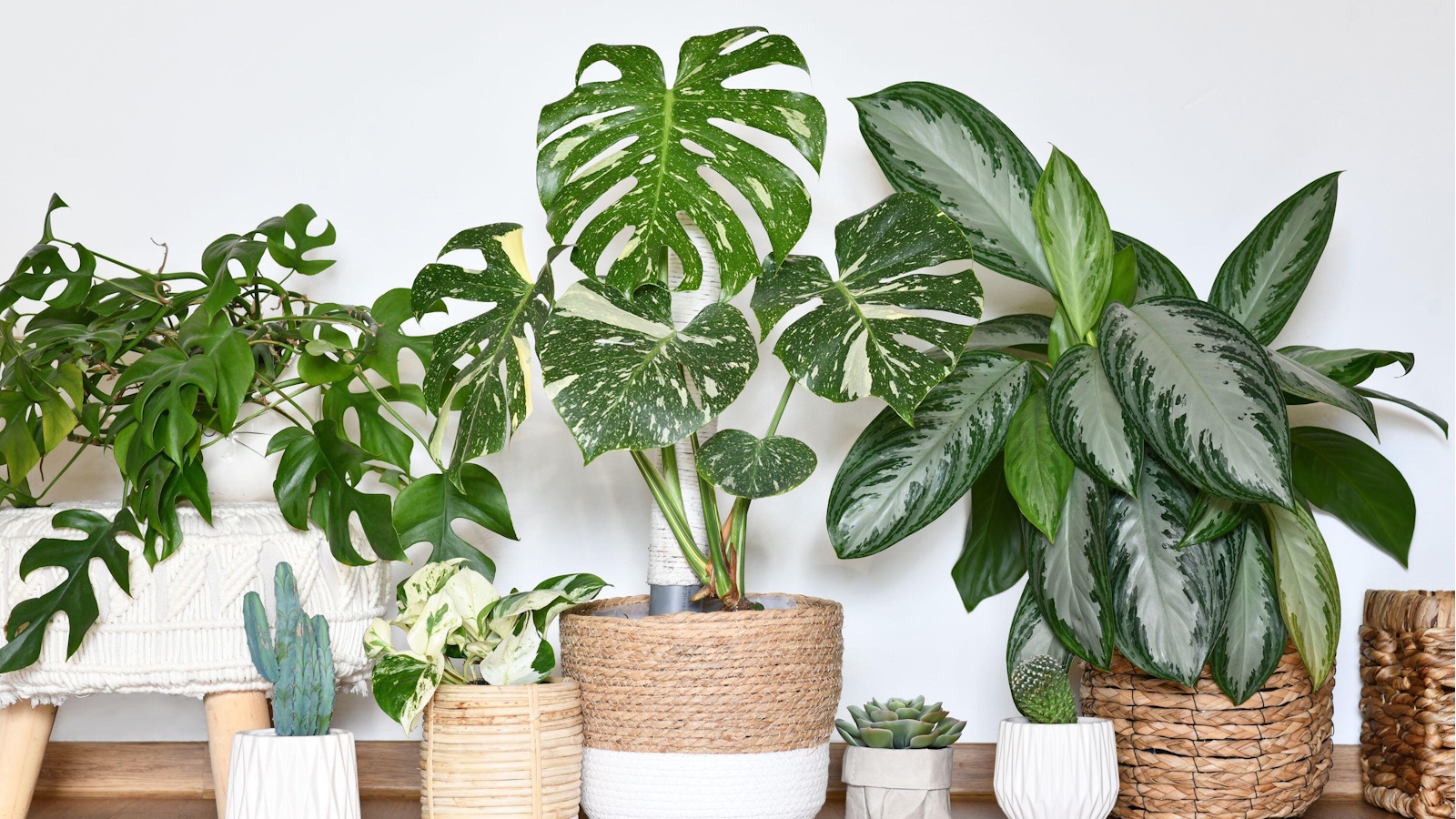 9 longest-living houseplants – expert recommendations and tips for species that can live over 10 years
9 longest-living houseplants – expert recommendations and tips for species that can live over 10 yearsInvest in these houseplants now for years of luscious foliage in your home
By Tenielle Jordison Published
-
 Kris Jenner's 'organic modern' living room champions the most talked-about trend of 2025 – it's the new way to do luxe-minimalism
Kris Jenner's 'organic modern' living room champions the most talked-about trend of 2025 – it's the new way to do luxe-minimalismSimple silhouettes, organic textures, and industrial nuances infuse functional pieces with elegance to create an effortlessly chic and easy-to-live-with living space
By Jennifer Ebert Published